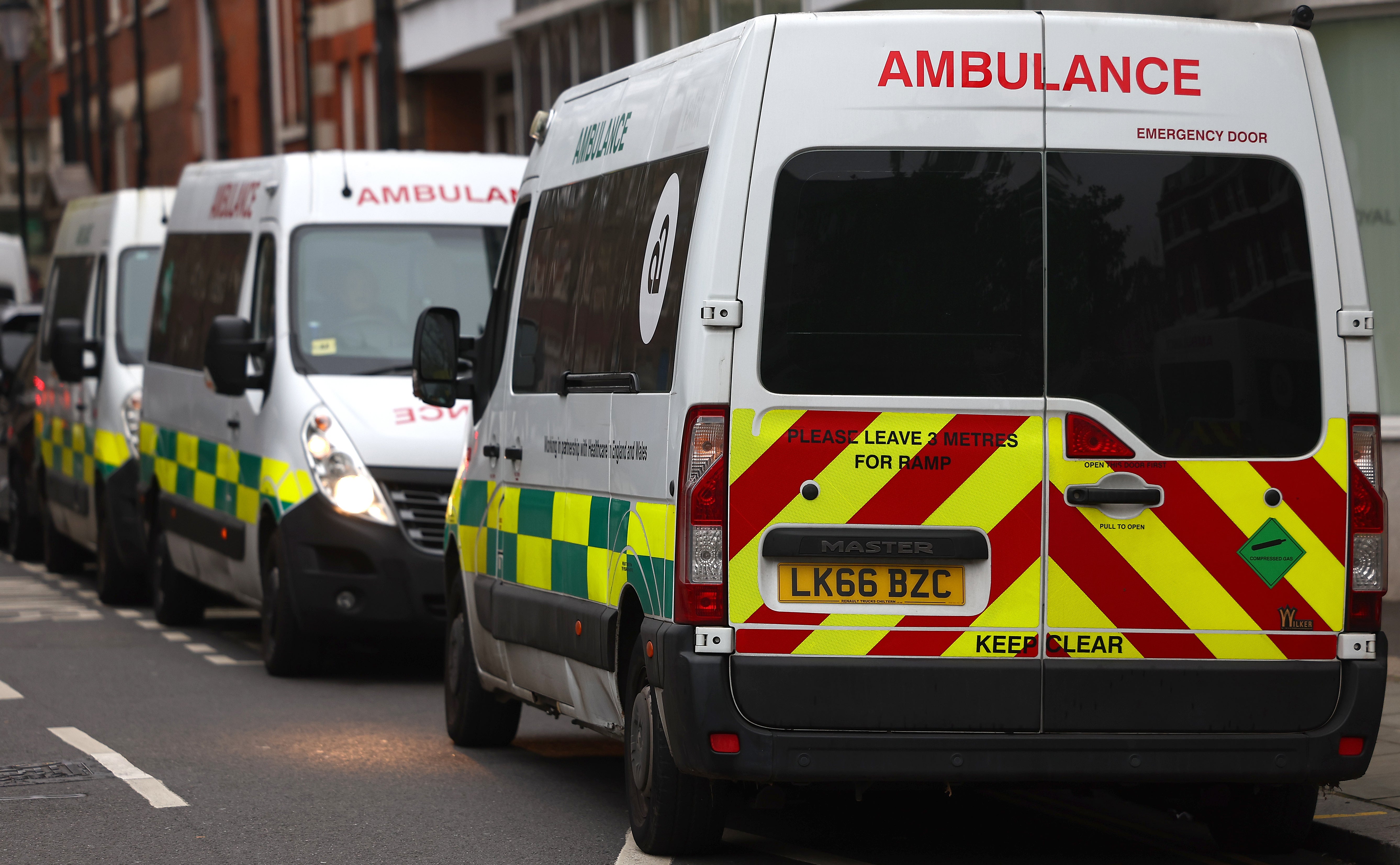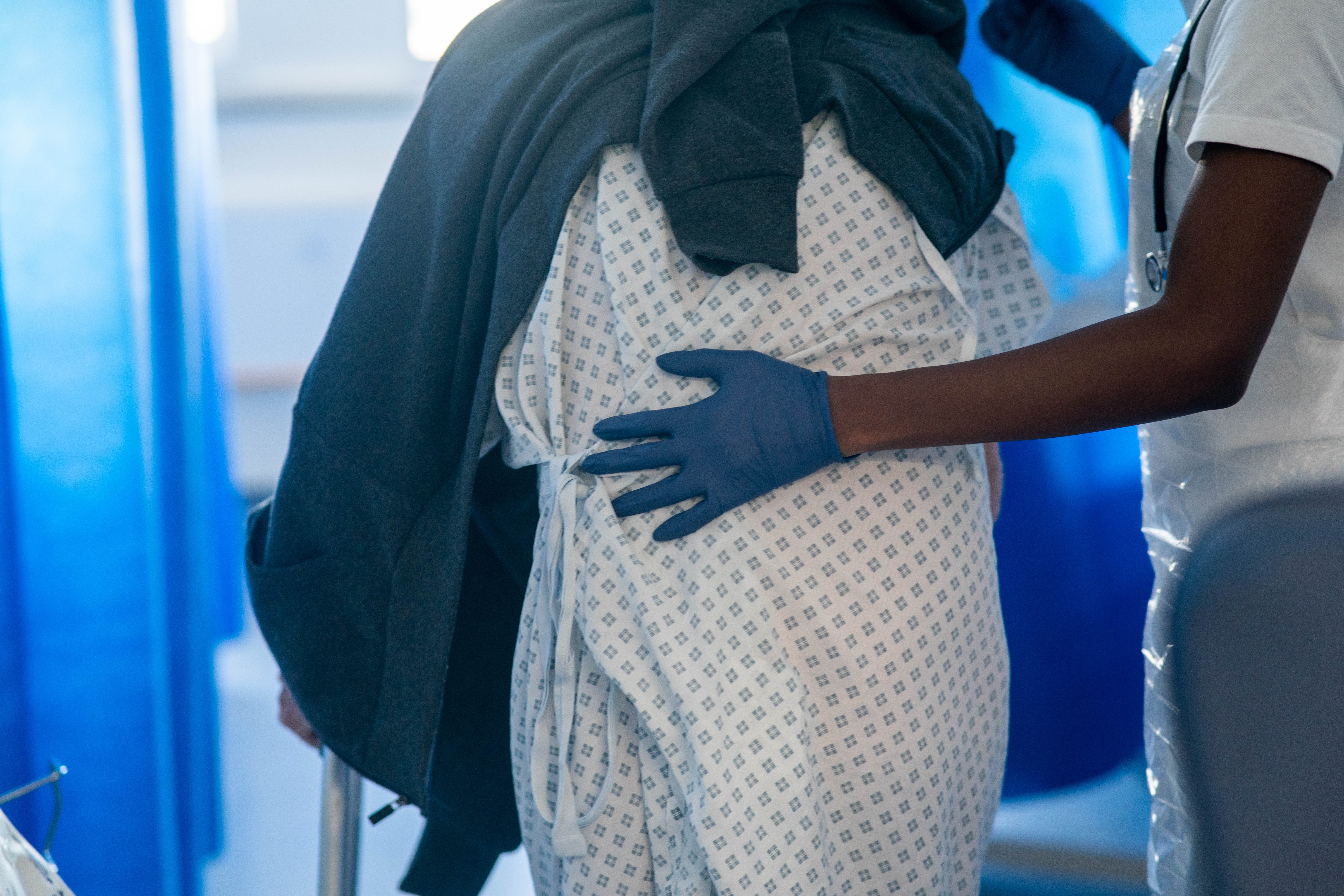Number of people in hospital with flu quadrupled in a month, NHS figures show
The number of people sick with flu in English hospitals is also up year-on-year
Your support helps us to tell the story
From reproductive rights to climate change to Big Tech, The Independent is on the ground when the story is developing. Whether it's investigating the financials of Elon Musk's pro-Trump PAC or producing our latest documentary, 'The A Word', which shines a light on the American women fighting for reproductive rights, we know how important it is to parse out the facts from the messaging.
At such a critical moment in US history, we need reporters on the ground. Your donation allows us to keep sending journalists to speak to both sides of the story.
The Independent is trusted by Americans across the entire political spectrum. And unlike many other quality news outlets, we choose not to lock Americans out of our reporting and analysis with paywalls. We believe quality journalism should be available to everyone, paid for by those who can afford it.
Your support makes all the difference.The number of people hospitalised with flu in England has quadrupled in a month heaping pressure on NHS services, new figures show.
An average of 4,469 flu patients were in beds in England each day last week, including 211 in critical care.
This is up 17 per cent from 3,818 the previous week, when 184 were in critical care. It is also more than four times the number on 1 December, when the total stood at 1,098.
NHS chiefs have warned that cases are rising at a “very concerning rate” and that the extreme cold snap expected over the weekend could compound the health risk for elderly and vulnerable people.
The figures have been published in the latest weekly snapshot of the performance of hospitals in England this winter. They also show that the average number of hospital flu patients last week, 4,469, was up some 240 per cent on the same week last winter, when the average was 1,312.

This is however down on the same point two years ago, when the figure stood at 5,441.
The NHS is dealing with a ‘quad-demic’ of respiratory infections, a term coined to describe four conditions expected to heap additional pressure on services in the winter months.
These are flu, Covid-19, respiratory syncytial virus and norovirus.
Professor Julian Redhead, NHS national clinical director for urgent and emergency care, said that the new figures showed that “the pressure from flu was nowhere near letting up before we headed into the new year”.

She said that cases were rising at a “very concerning rate”, adding: “On top of flu there is also continual pressure from Covid, while RSV and norovirus hospital cases are also higher than last year, with hospitals putting in place an extra 1,300 beds last week than the same time last year in expectation of this continued pressure from viruses and other demand.
“With what looks like an extreme cold snap expected right across England ahead of the weekend, we know the low temperatures can be dangerous for those who are vulnerable or have respiratory conditions so if you are at risk, do try and keep warm and make sure you are stocked up on any regular medication.”
A two-day yellow weather warning for snow and ice is in place over most of England from 12pm on Saturday.
The UK Health Security Agency (UKHSA) has issued a Cold-Health Alert (CHA), warning there will be an “increase in risk to health”, particularly for vulnerable people and the elderly. The warning remains in place until Wednesday 8 January.
Dr Agostinho Sousa, a health protection chief at UKHSA, said vulnerable people will be more at risk of “heart attacks, stroke and chest infections as a result of cold temperatures”.
Temperatures fell as low as -5C overnight in the UK on Thursday, with meteorologists warning that temperatures could reach -8C.
New NHS figures also show that 32.1 per cent of patients arriving by ambulance at hospitals in England last week waited at least 30 minutes to be handed over to A&E teams.
This is higher than the equivalent week last winter, when the proportion stood at 28.9 per cent. Some 12.9 per cent of ambulance handovers last week, or 12,229 patients, were delayed by more than an hour.
NHS Confederation chief executive, Matthew Taylor, said the winter stats showed that the NHS was facing huge demand from sicker patients. He warned that the next two to three weeks will “likely be the busiest period of the year for many local services”.

Join our commenting forum
Join thought-provoking conversations, follow other Independent readers and see their replies
Comments